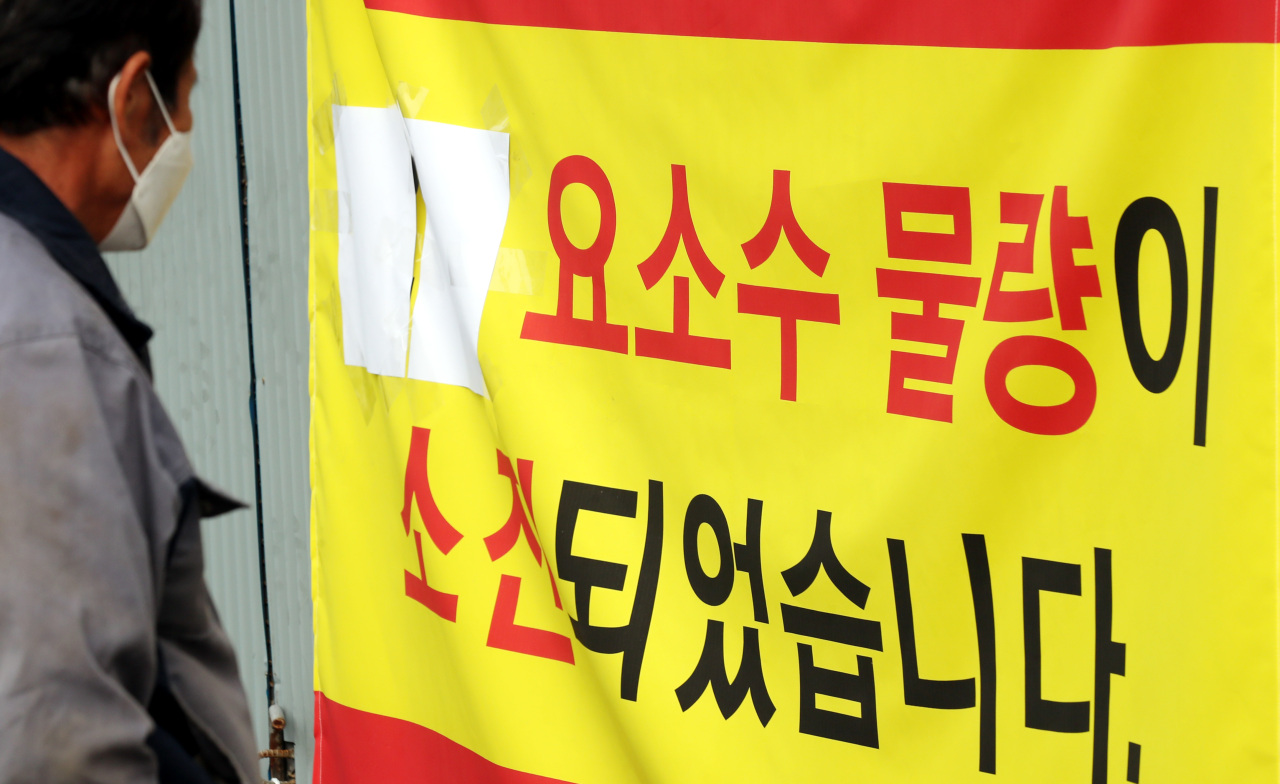Seoul looking to tap into industrial urea stockpile for diesel cars
Published : 2021-11-04 16:10:35

To ease a nationwide shortage of emissions control fluid for diesel vehicles, the South Korean government is getting hold of a key ingredient needed to make it from the industrial sector, officials said Thursday.
In Seoul and major cities across the country, diesel exhaust fluid, without which diesel trucks cannot run, is in short supply, triggering fears for disruptions in cargo delivery.
There is due to be a sharp drop in urea imports from China, which supplies more than 60 percent of the chemical in Korea.
In an emergency measure, the government verified the stockpile of technical-grade urea, held by steel, power generation and cement companies. It expects that the urea can be made into DEF for vehicles as early as next week, if the Ministry of Environment clears the move after a review of safety and technological issues.
“The Ministry of Environment collected samples and is going through technological testing. The result is likely to come out this weekend or sometime next week” said an official from the Trade Ministry.
DEF is a liquid solution that goes inside diesel vehicles.
Among the 3.3 million diesel-powered trucks currently operating in the country, 2 million of them are equipped with a Selective Catalytic Reduction system that requires DEF to operate.
Industry sources are concerned that there could be a logistics crisis next month, if the DEF shortage is allowed to continue.
The Trade Ministry is also planning to discuss with the Ministry of Environment about loosening environmental regulations on factory emissions if the industrial urea can be used to make DEF.
Industry sources say that regulations must be eased as facilities use urea to bring emissions below regulatory limits.
The government has continued to request cooperation from the Chinese government in efforts to resume imports of urea. China has tightened exports of diesel exhaust fluid as they are running short of coal due to a trade dispute with Australia. Urea, the main ingredient to make DEF, is usually made with ammonia extracted from coal.
In case China’s export restrictions prolongs, the government is reviewing adding new urea trade partners like Russia.
In Seoul and major cities across the country, diesel exhaust fluid, without which diesel trucks cannot run, is in short supply, triggering fears for disruptions in cargo delivery.
There is due to be a sharp drop in urea imports from China, which supplies more than 60 percent of the chemical in Korea.
In an emergency measure, the government verified the stockpile of technical-grade urea, held by steel, power generation and cement companies. It expects that the urea can be made into DEF for vehicles as early as next week, if the Ministry of Environment clears the move after a review of safety and technological issues.
“The Ministry of Environment collected samples and is going through technological testing. The result is likely to come out this weekend or sometime next week” said an official from the Trade Ministry.
DEF is a liquid solution that goes inside diesel vehicles.
Among the 3.3 million diesel-powered trucks currently operating in the country, 2 million of them are equipped with a Selective Catalytic Reduction system that requires DEF to operate.
Industry sources are concerned that there could be a logistics crisis next month, if the DEF shortage is allowed to continue.
The Trade Ministry is also planning to discuss with the Ministry of Environment about loosening environmental regulations on factory emissions if the industrial urea can be used to make DEF.
Industry sources say that regulations must be eased as facilities use urea to bring emissions below regulatory limits.
The government has continued to request cooperation from the Chinese government in efforts to resume imports of urea. China has tightened exports of diesel exhaust fluid as they are running short of coal due to a trade dispute with Australia. Urea, the main ingredient to make DEF, is usually made with ammonia extracted from coal.
In case China’s export restrictions prolongs, the government is reviewing adding new urea trade partners like Russia.
http://www.koreaherald.com/common/newsprint.php?ud=20211104000724